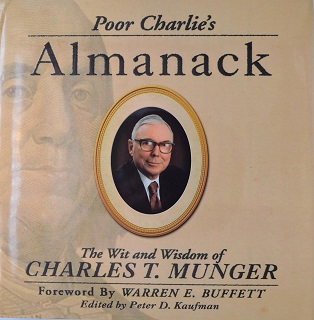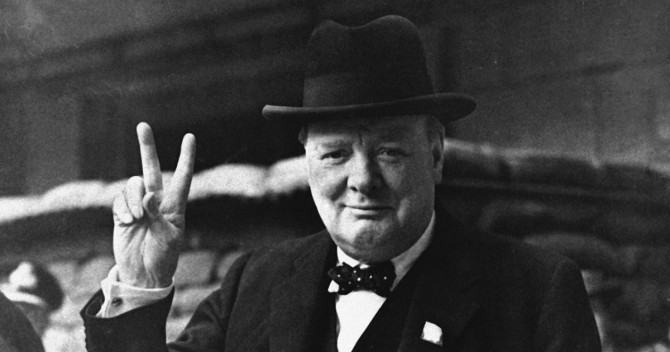
Charlie Munger, rest his soul, was one of the greatest investors that ever lived. Much of his timeless wisdom was captured in the 2005 book Poor Charlie’s Almanack by Peter D. Kaufman, which Strawman member Solvetheriddle summarised for our members.
Do yourself a favour, and read the book. But if you want the tl;dr version, read on!
These are a series of talks, except for the 2005 piece (immediately below) which was complied by CM being a summation of a few talks plus new material. That means the subject matter is not delivered consistently as may occur in a book. There are subjects repeatably covered in various talks. CM also gets on his hobby horse on several occasions railing against pet subjects, especially siloed academia.
Personally, I found the text, at times, difficult to read and ascertain the meaning, given CM’s style. I often had to read sections a few times to get the point. Then they are the gems that scatter throughout the talks. The themes that stand out to me are the importance of understanding the core success of a business, not only the financials and what it does, and the importance of psychology, to yourself and when dealing with others, over a period how, where and with whom you want to play become an incredible determining factor of success.
One suggestion by CM is to continually review these lessons to embed them into your consciousness. The following is my summary of the book.
Psychology of Human Misjudgement 2005
Invert always invert, which mostly means seeking good judgment by the study of bad judgment and pondering ways to avoid such outcomes.
Cognition is ordinarily situation-dependent, so different situations often cause different conclusions, even when the same person is thinking in the same general subject area.
List of tendencies
1. Reward and punishment super response tendency
When you want to persuade appeal to interest and not to reason.
Never, ever think about something else when you should be thinking about the power of incentives.
Perhaps the most important rule in management is to get the incentives right.
Antidotes of incentivised behaviour are, especially being fearful of professional advice when it suits the advisor, learning and using the basic elements of the advisors’ trade as you deal with the advisor, double-checking, disbelieving or replacing much of what you are told, to the degree that seems appropriate after objective thought.
Watch out for a man with a hammer tendency. Economists have long had a name for the natural results of incentive-caused bias: agency cost. There are trade-offs involved, and then as an employee replaces an owner of the business the trade-off takes place between salary and service, and how the new manager handles the employee pushback of a strong performance model.
Avoid rewarding people for what can be easily faked.
Granny’s rule is that children eat their carrots before they get their dessert. In business that means doing unpleasant tasks before rewarding themselves with undertaking the pleasant tasks.
2. Liking/Loving Tendency
The consequence of liking/loving is that you will ignore the faults of the object of affection, favour people, products and actions because they are merely associated with the object of affection and distort other facts to facilitate the love. Therefore biases are increased through this tendency.
3. Disliking/Hating Tendency
The opposite effect to the above. Either tendency acts as a conditioning device to incorporate bias.
4. Doubt-avoidance tendency
People don’t like to live with doubt, they want answers quickly. The tendency is usually triggered by stress and puzzlement. Leads to premature (and possibly incorrect) conclusions.
5. Inconsistency-avoidance tendency
Man’s brain is programmed to be reluctant to change. The benefits of this are fast decision-making, easy cooperation in groups, and a good stopgap in many situations.
Quickly reached conclusions, triggered by doubt avoidance tendency, when combined with a tendency to resist change in a conclusion, will naturally cause a lot of errors in cognition for the modern man.
People tend to accumulate large mental holdings of conclusions and attitudes that are often not re-examined or changed even though there is plenty of good evidence they are wrong.
The antidote to this tendency is to seek out and intensely consider any evidence that tends to disconfirm his hypothesis. That is the opposite of confirmation bias.
6. Curiosity Tendency
This is a positive tendency and should be continually encouraged and pursued.
7. Kantian Fairness Tendency
Modern man expects and displays much fairness from others. The obverse consequence is that much reactive hostility occurs when fair sharing is expected but not provided.
8. Envy/Jealousy
This tendency is extreme in myth, religion and literature. Generally, it is a taboo subject despite its importance and being commonplace.
9. Reciprocation Tendency
Can be bad or good, reciprocating the behaviour of others. The antidote is to train oneself to delay reaction in case of the negative. Businesses attempt to avoid employees taking gifts from suppliers as it destroys objectivity etc.
Reciprocation tendency subtly causes many extreme and dangerous consequences, not just on rare occasions but pretty much all the time.
10. Influence from mere association tendency
People will extrapolate good and poor experiences. Eg. They associate high prices with high quality. Etc
The antidote is to carefully examine past success, looking for accidental or causal factors with such success that will tend to mislead as one appraises the odds implicit in the new venture. Look for dangerous aspects in the new venture that were not present when the past success occurred.
Shoot the messenger syndrome arises from this tendency. Bad news must be promptly delivered.
Future performance may not be the same as past performance.
Hating and disliking tendencies are closely related. Conclusions from stereotypes are common misjudgements from this tendency.
11. Simple, pain-avoiding psychological denial.
Suffering from a traumatic experience can bring irrational decisions (ed. understandable)
12. Excessive self-regard tendency
Naturally, all forms of excess self-regard cause much error.
The endowment effect is a phenomenon in this tendency.
Fixable but unfixed bad performance is a sign of bad character and tends to create more of itself, causing more damage to the excuse-giver with each tolerated instance. The best antidote is to force yourself to be more objective when you are thinking about yourself, others, your property and the value of your past and future activity.
Some level of pride is a positive outcome. Ed. This is a matte of degree, eg confidence against hubris
13. Over-optimism Tendency
What man wishes he also believes.
One antidote is to be a trained and habitual user of the simple use of probability maths. Ie objectively assesses the likely outcome of success.
14. Deprival-super reaction tendency
That is, a loss seems to hurt much more than a gain seems to help.
A man ordinarily reacts with irrational intensity at even a small loss, or a threatened loss, of property, love, friendship, dominated territory, opportunity, status, or any other valued thing.
This tendency can occur and result in a people or country destroying a threat, to just someone overbidding at an open-cry auction. Buffet has one rule for open-cry auctions, avoid them. Fear can breed a large negative result. Ed. FOMO
15. Social proof Tendency
Man has an automatic tendency to think and act as he sees others around him thinking and acting.
Triggering most easily occurs in the presence of puzzlement, stress or particularly both.
16. Contrast-misreaction Tendency
Mainly used as a selling technique to show a low price which is being compared to an incorrect overinflated price.
Sometimes this can be subtle, when a man takes very small steps, the brain’s contrast misreaction tendency will allow the man to go too far towards disaster to be able to avoid it. The small moves only are taken as small adjustments. Eg boiling frog example
Cognition, misled by tiny changes involving low contrast, will often miss a trend that is destiny.
17. Stress influence Tendency
Extreme stress can change personality. Attempt to avoid making decisions under extreme stress.
18. Availability misweighing Tendency
Over-reliance on the most easily attainable data. The main antidote often involves procedures, including the use of checklists, which are almost always helpful. Another is to over-emphasise disconfirming evidence.
Another variation of this tendency is that the most vivid information is over-weighted. Being more cognitively available.
An idea or fact is not worth more because it is more easily available to you.
19. Use it or lose it Tendency
All skills attenuate with disuse, especially rarely used skills. Keep a checklist and use it routinely. Otherwise too much is missed. A wise man engaged in learning some important skill will not stop until he is fluent in it.
20. Drug -misinfluence tendency -self-explanatory
21. Senescence-misinfluence tendency
Older people need to intensely practice old skills until late in life. Requires continuous learning and thinking.
22. Authority-mis influence tendency
Following orders etc from superiors even though they lead to disaster. Be objective no matter the source.
23. Twaddle tendency
It’s a very important part of wise administration to keep prattling people pouring out twaddle far away from the serious work. Ed. Social media has opened the floodgates
24. Reason-respecting tendency
Think through giving your orders but also give reasons for the orders to the recipient of the orders.
Ideas get through best when reasons are meticulously laid out. Compliance greatly improves with reasons.
25. Lollapalooza Tendency
The combination of many tendencies gives an oversized result, good or bad.
Other bits mentioned, there is limited practical refinement possible in the above tendencies because a significant amount of messiness is unfixable in a soft science like psychology. Tendency is not always destiny. Ed. We are not dealing with issues written in stone.
MUNGERS INVESTMENT EVALUATION PROCESS
Charlie scores himself not on whether he won or lost a hand but on how well he played it. Sloppy preparation and decision-making are never excusable because they are controllable.
Temperamental qualities required are extreme patience combined with extreme decisiveness. Self-discipline, patience, being calm and independence of thought. Adequate preparation is critical.
CHECKLIST
Risk: Incorporate a margin of safety, as compensation for risk, that the outcome should avoid permanent capital loss.
Independence: Objectivity and rationality require independence of thought. Be correct in your analysis and judgement, it doesn’t matter if others agree or disagree with you.
Preparation: More important than the will to win is the will to prepare. Be curious, continue learning and develop fluency in mental models of the major academic disciplines. Keep asking why?
Intellectual Humility: Acknowledging what you don’t know is the dawning of wisdom. Stay within a well-defined circle of competence, identify and reconcile disconfirming evidence, and resist the challenge of false certainties and false precision. Remember you are easy to fool.
Analytical Rigor: The use of a scientific method and checklists reduces errors. It is better to remember the obvious than to grasp the esoteric.
Be a business analyst, not a market, macro or security analyst.
Look at risk totally, second order and higher level impacts.
Think forward and backward. Invert, always invert.
Allocation: Opportunity cost is the next best idea, remember great ideas are rare when you see one bet heavily.
Patience
Be alert for the arrival of luck.
Enjoy the process along with the proceeds as that is where you live.
Decisiveness
Opportunity meets the prepared mind. Opportunity doesn’t come often, use it when it does.
Change
Recognise reality even when you don’t like it, especially when you don’t like it. Continually challenge and amend your best-loved ideas.
Focus
Guard against hubris and boredom. Don’t overlook the obvious by drowning in minutia. Face your biggest problems don’t sweep them under the carpet.
A LESSON ON ELEMENTARY WORDLY WISDOM AS IT RELATES TO INV MGT and BUSINESS 1994
You must be on top of elementary probability, Buffet automatically thinks in decision trees and the elementary math of permutations and combinations. Understanding bell-shaped curves is helpful.
Must know some accounting, especially enough to know its limitations.
The engineering idea of backup systems is very powerful. The engineering idea of breakpoints is very powerful as well. The notion of critical mass that comes out of physics is a very powerful model. The advantages of scale are ungodly important. Especially be aware of where and how natural monopolies can and do occur.
Look for number one or two in the market. Alternatively, some may define a small defendable niche and dominate that. The curse of scale and monopolies is bureaucracy ossifying innovation and the inability to face issues.
Use a two-track analysis, one is considering what factors are really governing the interests involved, rationally considered. Secondly, evaluate the psychological factors that cause subconscious conclusions. You may identify many that are wrong.
Over the years, we’ve tried to figure out why the competition in some industries gets sort of rational from an investor’s point of view, while in others there is destructive competition that destroys value. I haven’t been able to find a perfect model to predict what will happen. Factors to consider are brands, patents, trademarks etc, and exclusive franchises which are all positives.
The great lesson in microeconomics is to discriminate between when technology is going to help you or when it’s going got kill you. Do you get to keep the efficiencies from technology or are they passed onto consumers, labour etc.
Technological innovation brings great benefits to the early birds. There is a model CM called surfing, that rides the innovation. Where there is a clear benefit they are selling and although the barrier to entry may not last in the long term, there could be years of benefit to shareholders. Although recognising this occurrence, Berkshire doesn’t normally participate due to the lack of knowledge of the nature and longevity of the technological development. Play where you have the aptitude.
Opportunities are rare and need to occur in your circle of competence, so when those two align bet heavily. (It is obvious that) the winning investor has to bet very selectively. Once set, let it run, sit on your ass.
Berkshire is different from traditional money managers because they don’t need to know everything. BRK invests in what they know when there is clear mispricing. That leaves them much more concentrated and much less active. Ed. And not intuitive but less risky
In the long term, it is hard for a stock to earn a much better return than the business that underlies it. Most of our money has been made in high-quality companies. Find these quality companies early if you can. There will be few opportunities to grab them when they are discovered.
AS ABOVE REVISITED 1996
CM expounds the virtue of using mental models otherwise you will look at financials, twiddling your thumbs. You’ve got to learn 100 models and a few mental tricks and keep doing it all your life. Of all the models…perhaps the most important lies in the area of psychology.
Ideology does some strange things and distorts cognition terribly. Ed. ie heavy ideology incorporates biases in your thinking. On a positive note, you can pursue a heavy ideology in favour of accuracy, diligence and objectivity (a positive). Focus on the discipline of mastering the best of what other people have ever figured out. CM points out it is ok to have a view on various issues but when you become sure on issues, like politically driven issues into economic policy, for example, you become a lousy thinker.
Denial is a strong psychological factor, and so is envy, and incentive-caused bias. Misery-caused mental malfunction is not properly covered in academic texts.
You need to put in your head the psychology of misjudgement in a form whereby you have all of the important models and you can use them. And you especially need them when four or five forces from these models come together to operate in the same direction. In such cases, you often get lollapalooza effects, which can make you rich or kill you. And to repeat, you have to pay special attention to combinational effects that create lollapalooza consequences.
A significant portion of people will steal if it is easy to do and secondly, they will not get caught. Once started, the consistency principle combined with operant conditioning will make stealing habitual. It’s very important to create human systems that are hard to cheat.
Incentive-caused bias plus social proof, if people are profiting in a social climate of doing wrong, then they will turn on you and become dangerous enemies if you try and blow the whistle. Powerful psychological forces are at work for evil. Ed. Could have used this and maybe avoided crucifixion
We’re always looking for something where we think we have an insight that gives us a big statistical advantage. Sometimes it comes from psychology, but often it comes from something else. And we only find a few, maybe one or two a year. At BRK we have no system for having an automatic good judgment on all investment decisions that can be made… we have succeeded by making the world easy for ourselves not by solving hard problems.
There needs to be a mispriced opportunity, where we think we have an insight advantage, which could be statistical or not, and we have to be smart enough to recognise it. That combination does not occur often… even in our method, we only get a few opportunities, fortunately, that happens to be enough. Buffet and I are very good at changing our prior conclusions. We work at developing that facility because, without it, disaster often comes.
There is no way you can live an adequate life without making many mistakes. You may not be able to learn to make fewer mistakes than some others but you can learn to how to fix your mistakes faster when you do make them.
Failure to handle psychological denial is a common way for people to go broke. Consistency principle, the more effort and money I put in the more chance it has to work. And deprival-super reaction syndrome comes in: you’re going to lose the whole thing if you don’t put in a little more.
Each person has to play the game given his own marginal utility considerations and in a way that takes into account his own psychology.
When you don’t know and you don’t have any special competence, don’t be afraid to say so. I try and get rid of people who confidently answer questions about which they don’t have any real knowledge.
Appeal to a man’s self-interest before any rational argument.
PRACTICAL THOUGHT ABOUT PRACTICAL THOUGHT. 1996
Helpful notions, 1. usually best to simplify problems by solving the big no-brainer questions first, 2. Scientific reality is only revealed by numeric fluency. 3. Many problems can only be solved by inverting the problem, 4. the best and most practical wisdom is elementary academic wisdom, with the qualification that you must think in a multidisciplinary manner. You must routinely learn all the elementary course concepts from freshman courses in a basic manner. 5. Big effects often come from a combination of factors.
For example, Coca-cola combines Pavlovian conditioning, powerful social proof effects (imitation consumption), and a wonderful tasting, energy-giving, stimulating and desirably cold beverage, that causes much operant conditioning (ed. repeating a positive experience).
Richard Thaler believes, with CM, that people are often massively irrational in ways predicted by psychology that must be taken into account in microeconomics.
Einstein once said that one of the four causes of his achievements was self-criticism, ranking right up there alongside curiosity, concentration and perseverance.
THE NEED FOR MORE MULTI-DISCIPLINARY SKILLS 1998
Professional cognition will improve with broader learning, the culprits are two biases one being incentive-caused bias, in that a belief that what is good for the professional is also good for the client and the world at large, secondly, the man with a hammer tendency, which can be overcome with the more varied skills the professional carries.
CM compares the training of pilots, which covers a very broad knowledge to pass many tests sometimes combined, think through problems forward and backward, concentrating not only on what he wants to happen but also what he doesn’t want to happen, what is most important gets elevated to the highest fluency levels, checklists routines are mandatory, as is the ongoing maintenance of knowledge.
Learning only the big ideas in each discipline, learned only in essence carries the most freight. Thinking by inversion through a checklist is easily learned.
This chapter is a criticism of learning by siloed academia and suggests that broader learning and using ideas from other disciplines is extremely useful in business, investing.
Take a simple basic idea and take it very seriously.
INVESTMENT PRACTICES OF LEADING CHARITABLE FOUNDATIONS 1998
The first principle is that you should not fool yourself and you are the easiest person to fool.
Indexing won’t work forever if almost everyone turns to it, but it will work all right for a long time.
In short in the LBO field, there is a buried covariance with marketable equities—towards disaster in generally bad business conditions –and competition (between LBO’s) is now extreme.
Generally, I tend to prefer BRK practice of participating in foreign economies through the likes of KO and Gillette rather than investing directly in foreign markets.
ACADEMIC ECONOMICS: STRENGTHS and FAULTS after Considering INTERDISCIPLINARY NEEDS 2003
I couldn’t stand reaching for a small idea in my own discipline when there was a big idea right over the fence in somebody else’s discipline. So I just grabbed in all directions for the big ideas that really worked.
Under this ethos, you’ve got to know all the big ideas in all the disciplines more fundamental than your own. You can never make any explanation that can be made in a more fundamental way, in any other way than the most fundamental way. The hard disciplines are physics, maths, chemistry and engineering. Mentions Boltzmanns constant. Mentions Gregory Manikow textbook.
CM then lists the things wrong with academic economics.
1. Fatal unconnectedness, leading to a man with a hammer syndrome. The only antidote is to have a full set of tools plus use those tools checklist style.
Firms generate a lot of numbers to analyse. These numbers may cover a certain segment of the issue. But other factors are terribly important, yet there is no precise numbering you can put on these issues. Well, practically everybody 1. Overweights the stuff that can be numbered because it yields to the statistical techniques they’re taught in academia, and 2. They don’t mix in the hard-to-measure stuff that may be more important. That is a mistake.
2. Failure to follow the fundamental full attribution ethos to hard science. (ie acknowledgement of ideas)
3. Physics envy. The sort of precise, reliable formula that includes Boltzmanns constant is not going to happen, by and large, in economics. There is a false precision, this great hope for a reliable precise formula. Eg EMT
4. Too Much emphasis on macroeconomics. Focus on microeconomics. Such as unit economics, understanding scale economics, understanding what the business did that was positive, incentive structure, personnel selection, advertising, where is the source of the success? Back success and have an idea why it exists.
Extreme success is likely some combination of the following factors. 1. Extreme maximisation or minimization of one or two variables, Cosco, Nebraska Furniture Mart. 2. Adding success factors so that a bigger combination drives success, often in a non-linear fashion, as one is reminded of the concept of breakpoint and the concept of critical mass in physics. Often, the results are not linear. You get a little bit more mass and you get a lollapalooza result (ed. Network effects, breakeven operating leverage, gorilla outcome). And, of course, I’ve been searching for lollapalooza results all my life, so I’m very interested in models that explain their occurrence. 3. An example of good performance over many factors, Toyota, les schwab. 4. Catching and riding some big wave, Oracle. Flip your thinking both backward and forward.
5. There is too little synthesis in economics. (ed. CM hobby horse)
6. Extreme and counterproductive psychological ignorance. CM talks about the benefits of knowing psychology. (ed another hobby horse)
7. Too little attention to second and higher-order effects. Eg gaming behaviour, all human systems are gamed, for reasons rooted deeply in psychology, and great skill is displayed in gaming because game theory has so much potential.
8. Not enough attention to the concept of febezzlement. (ed. Middlemen fees.)
9. Not enough attention is paid to virtue and vice effects. Becoming good at destroying your best-loved and hardest-won ideas, if you can get really good at destroying your own ideas, that is a great gift….And I urge people to not be discouraged by irremovable complexity and paradox, it just adds more fun to the problems, better to be roughly right than precisely wrong.
Mentions book The Moral Consequences of Economic Growth-Friedman
USC GOULD ADDRESS 2007
The skill that got BRK through one decade would not have sufficed to get it through the next decade with comparable levels of achievement. Buffet had to be a continuous learning machine.
The way complex adaptive systems work, and the way mental constructs work, problems frequently become easier to solve through inversion.
I’m not entitled to have an opinion unless I can state the arguments against my proposition better than the people who are in opposition.
Generally speaking, envy, revenge, resentment, and self-pity are disastrous models of thought. Self-pity can get pretty close to paranoia. Paranoia is one of the very hardest things to reverse. Self-pity is always counterproductive.
You also want to get self-serving bias out of your mental routines. Thinking what’s good for you is good for the wider civilisation.
You also have to allow, in your own cognition and conduct, for the self-serving bias of everyone else. If you are to persuade appeal to interest, not to reason.
Avoid being subject to perverse incentives. Perverse associations are also to be avoided.
Engaging in routines that allow you to maintain objectivity is, of course, very helpful to cognition.
Checklist your routines.
That intense interest in any subject is indispensable if you’re really going to excel in it.
Another thing you have to have is a lot of assiduity (ed. execution-get the job done).
CM tells the story about the Nobel prize winner who undertakes a long tour delivering the same speech. His chauffeur follows him around and convinces the Nobel prize winner that the chauffeur can give the speech, having heard it many times. He duly delivers the speech. Then a question comes, he says that he is surprised at getting asked such an elementary question that his chauffeur will answer it.
CM continues, in this world, I think we have two kinds of knowledge one is of the Nobel prize winner, those of people that really know, they have paid their dues and have the aptitude. Then we’ve got the chauffeur knowledge. They have learned to prattle the talk. They may have a big head of hair. They often have a fine timber in their voices. They make a big impression. But in the end, what they’ve got is chauffeur knowledge masquerading as real knowledge…. You’re going to have a problem in your life of getting as much responsibility as you can to the people with the Nobel prize winner knowledge and away from the people who have the chauffeur knowledge. And huge forces are working against you. Ed. You mean it existed before social media? lol
Strawman is Australia’s premier online investment club.
Members share research & recommendations on ASX-listed stocks by managing Virtual Portfolios and building Company Reports. By ranking content according to performance and community endorsement, Strawman provides accountable and peer-reviewed investment insights.
Disclaimer– Strawman is not a broker and you cannot purchase shares through the platform. All trades on Strawman use play money and are intended only as a tool to gain experience and have fun. No content on Strawman should be considered an inducement to to buy or sell real world financial securities, and you should seek professional advice before making any investment decisions.
© 2024 Strawman Pty Ltd. All rights reserved.
| Privacy Policy | Terms of Service |
ACN: 610 908 211







